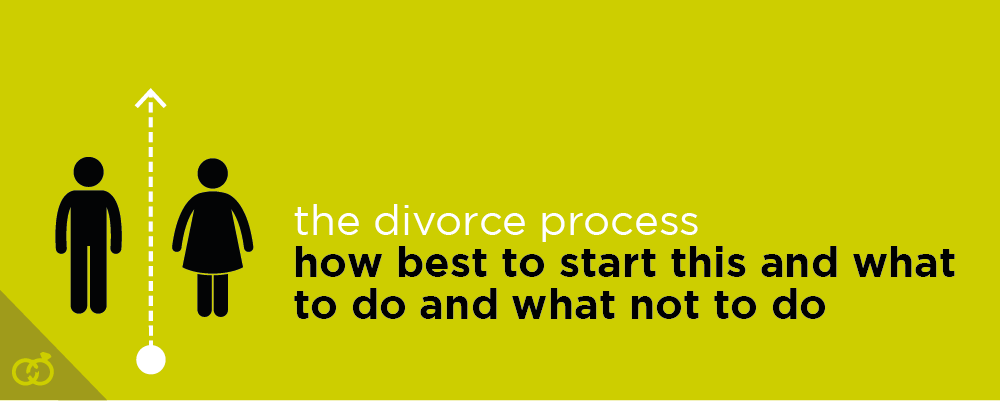- Basildon 01268244144
- Chelmsford 01245453800
- Colchester 01206217300
- London 020 4586 1280

Most divorce applications are now submitted online with some exceptions which still require the application to be made on paper.
Since the introduction of the no-fault divorce process in April 2022, it has made how you start a divorce proceeding a little easier.
However, there remains a minimum of 26 weeks for a divorce to complete. In some instances, it will take longer particularly, if the spouses are attempting to resolve issues concerning finances and/or child arrangements.
If you are starting the divorce process, here are some dos and don'ts.
What to do
Where possible, and appropriate, have a discussion with your husband or wife – Further advice on this can be accessed in our first blog for Good Divorce Week 2022 - The First Conversation about a Divorce.
Discuss and where possible agree on whether the divorce application is going to be a sole or jointly submitted one.
Consider whether you need to seek independent legal advice. If you are unsure as to the process and require detailed information and guidance, it is our advice to speak to one of our specialist family law solicitors.
Agree on the payment of fees for the divorce application which currently stands at £593.00. It may be that one party shall be responsible for the fee. Alternatively, both parties can make a contribution whether equally or unequally.
Have your marriage certificate to hand or obtain a copy of your marriage certificate before starting your divorce application.
Have the full postal address and email address of your spouse, particularly if you are no longer living in the same household.
Do remember that there is no such thing as a “quickie” divorce with the process taking 6 months hence to manage your expectations.
Tell the children in a pre-agreed and planned manner. Further advice on this can be found in our second blog for Good Divorce Week - Telling the children.
What not to do
Don’t forget the one-year rule. Despite the introduction of no-fault divorce, it remains the law that spouses may not start a divorce application until they have been married for at least a year.
Don’t forget to manage the cost of any court fees and solicitor’s fees (if applicable) which your spouse and you have agreed to share the expense is paid upfront.
Don’t forget about the finances. Bringing a marriage to a legal end is simply one element of the process. The bigger, and often more important aspect, can involve the resolution of finances between you both.
Don’t feel pressurised in completing the divorce process if there remain outstanding issues of child arrangements and/or finances to resolve.
Don’t forget to obtain legal advice, especially where the issues of child arrangements and finances need to be settled. It may seem self-serving to say but we really recommend you lean on our experience and seek out independent legal advice. We can make you aware of your options and legal claims saving you time and stress.
Don’t use the children to pass messages to your spouse concerning the divorce. These are adult conversations that are best kept away from children.
Resolution runs an annual Good Divorce Week. All our family law solicitors are members of Resolution and are committed to the settlement of disputes in a non-confrontational and constructive manner.
This year, the Family Courts continue to face a huge backlog of cases. Access the recent blog with the Family Court Statistics to learn more.
At Birkett Long, we aim for an amicable divorce. Typical UK divorce has changed with the addition of no-fault divorce. Should you wish to discuss issues concerning divorce, children or finances, please do not hesitate to contact me. You can call me on 01268 824938 or contact me via email at muntech.kaur@birkettlong.co.uk.
Are you looking for the best divorce lawyer near you? Check out our reviews on Review Solicitors.



Comments